This is a follow up post on my Beacon article. I thought some people might have questions about the limitations of that particular piece of analysis, as I analysed data about a partly conservative hashtag. I already mentioned in the Beacon post that I can reproduce (and I have) the same results with other types of hashtags and topics, but why take my word for it? I decided to blog my results from additional analyses here. I have already deleted my previous data sets on non-politicised and opposition-like topics, so I will analyse a few other hashtags -on Twitter- that communicate opposition ideas, and post only a few details here.
I will update this post as I add additional results. I will try to keep it short, without comments.
Hashtag: #CizredeSivilHalkKatlediliyor (civilians are being killed in Cizre) (opposition) (total tweets: 1033)
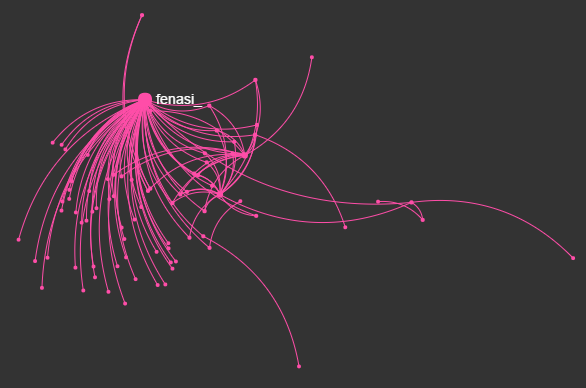
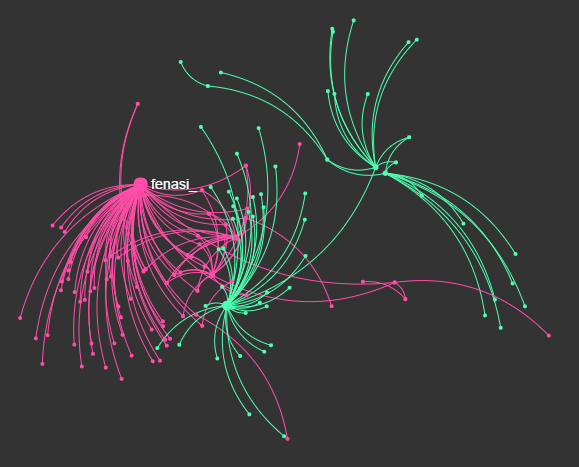
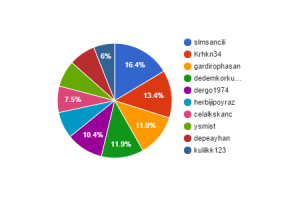
—
Another hashtag communicating opposition ideas is: #akepeiçsavaşistiyor (AKP wants civil war) (currently 1,225 tweets, still collecting)
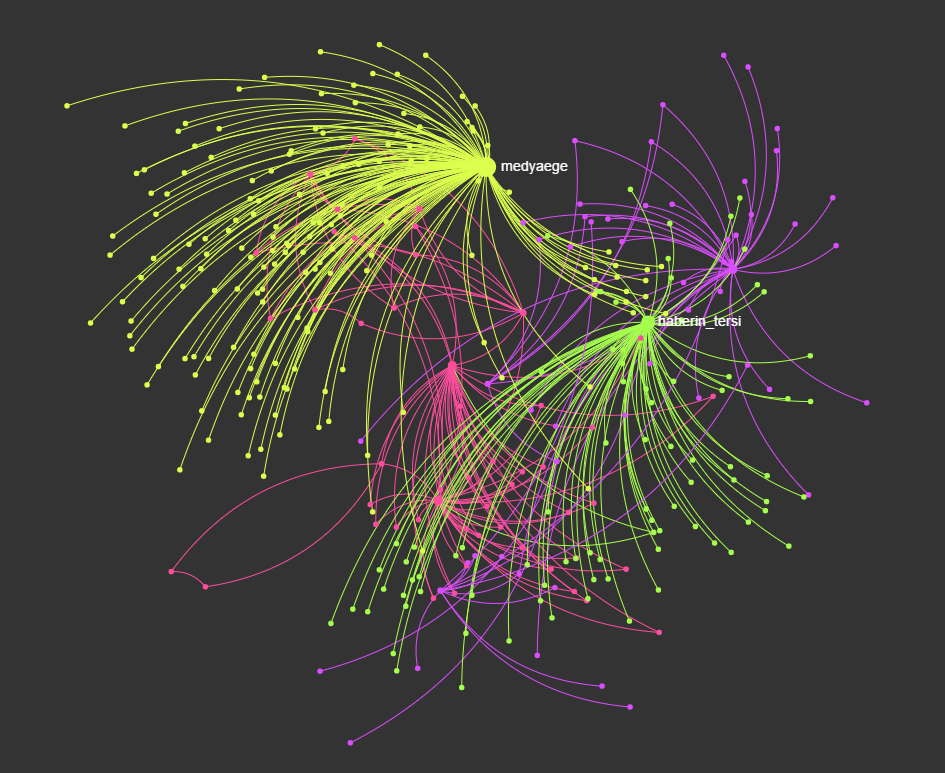
The centre node of the biggest cluster, Medya Ege, seems like a mainstream/tabloid-style news platform at first, but the terms and keywords they use, and the style of story-telling (like using DAEŞ [claimed to be ISIS in Arabic by President, but it’s not] instead of IŞİD [ISIS in Turkish], or featuring pro-gov’t columnists in general) show that the platform is at least a pro-government one, if not “openly”.
The site also features a religious cult leader who is really fond of the government and President Erdoğan. I won’t name this person as he is too rich and powerful, and he sued me before. Their “guys” tend to search the internet for his name and sue people for fun and money.
Anyway, the second biggest cluster is centred around Haberin Tersi, an ultra-nationalist platform, mostly aligned with political parties like MHP and BBP.
The third biggest cluster is centred around a MHP deputy. Enough said…
Only the fourth biggest cluster, which isn’t even close in size to the first three, is centred around an “opposition/liberal” Twitter user.

I don’t want to over-analyse each detail, but what I noticed is a problem with the first top posters who cover more than 55% of the posts. When I searched for @bayaramaazkaldi on Twitter, the only account Twitter shows is @fransaliABLA, and the @bayaramaazkaldi account doesn’t exist. The owner must have changed their handle to @fransaliABLA. So, it’s the same person. The third top tweeter is an openly pro-government, “aggressively religious” account. Enough said…
—
Ridiculous example, and the last one: “akp”
What is known to the world as Justice and Development Party is officially named “AK Parti”. Supporters of it do everything to avoid using AKP by mistake or for convenience. So, accounts posting or retweeting tweets containing “akp” are expected to be opposition accounts.
Question 1: are the accounts domination the network opposition accounts?
Question 2: if they are, what kind of opposition they are following?
This is how the network looks (1000 tweets):
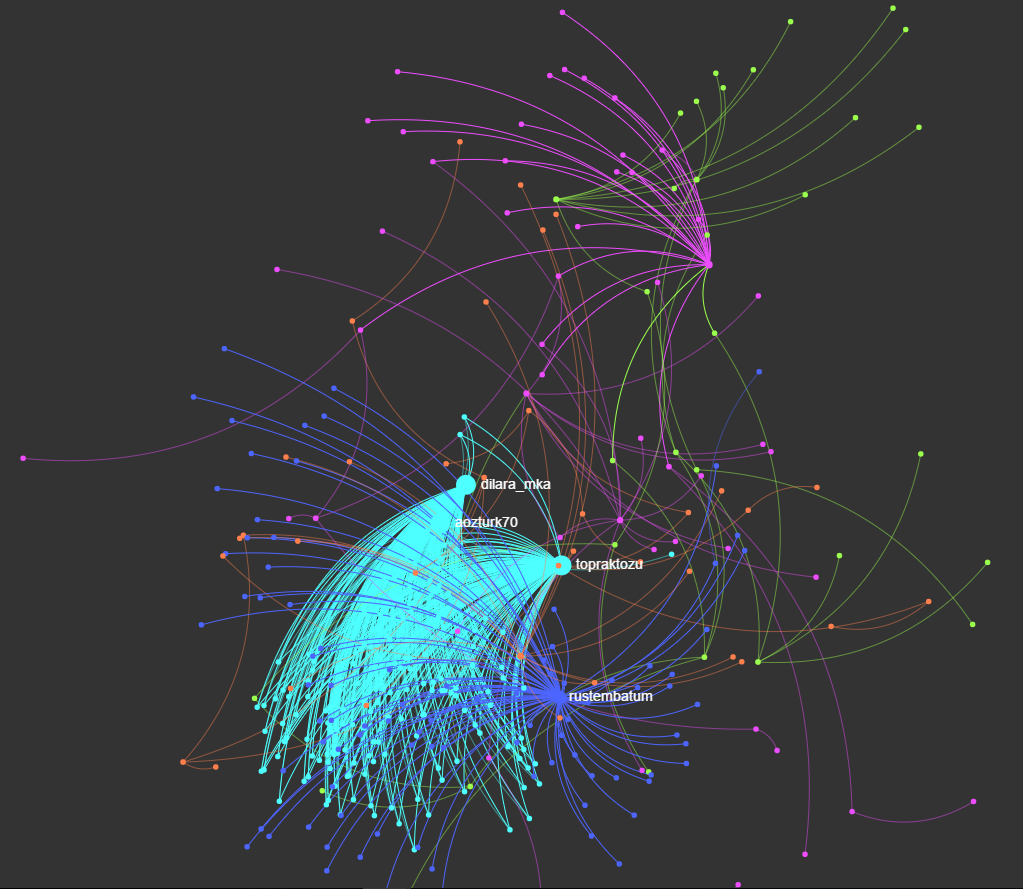
So, in the sense of opposition vs. pro-gov’t and liberal vs. conservative, we seem to be stuck with conservative, pro-gov’t, or both.
Yes, most connected a few accounts are opposition accounts, but they are either ultra-nationalist accounts that tweet really racist or at least negative things about HDP and Kurds in general, or religious conservative accounts that used to be pro-government.
Limited information? Let’s see how it is with twice the number of initially collected tweets.
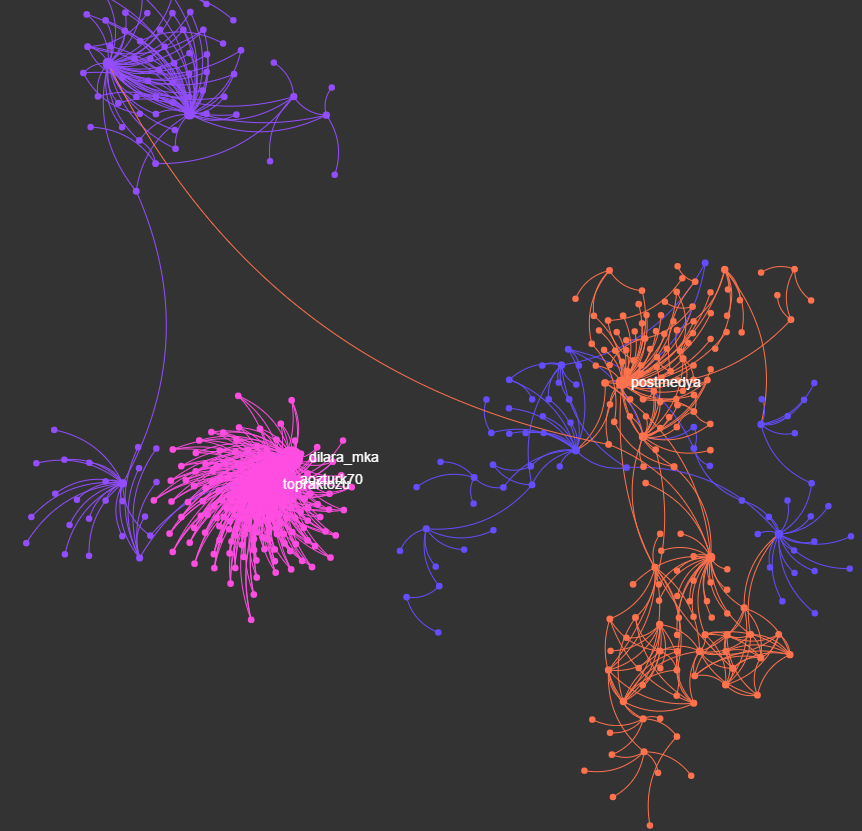
…but wait, there’s more.
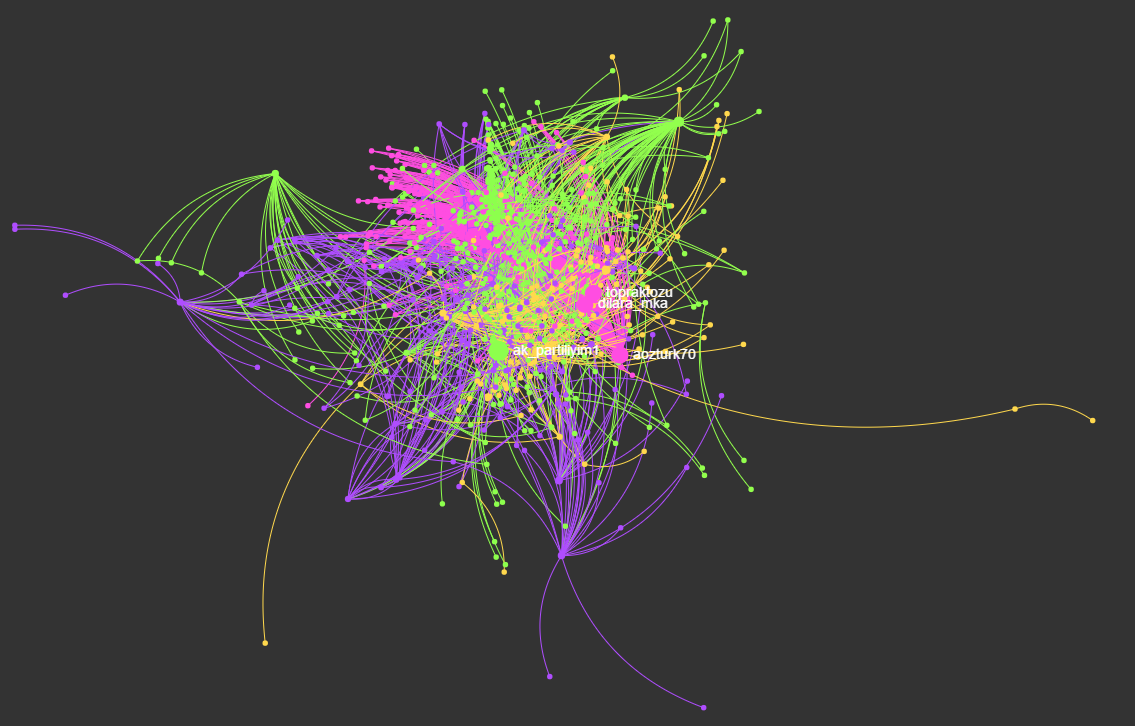
And the winner is…
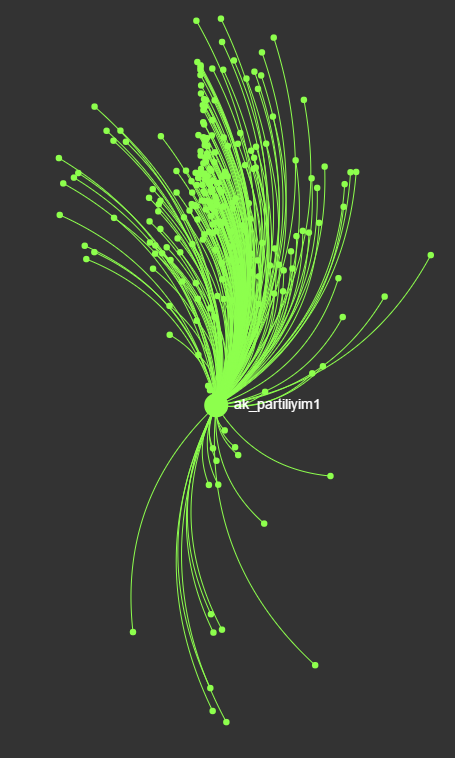
The next two biggest clusters are still centred around ultra-nationalists.
The Cemaat trying to keep up, but not even close.
The rest of the network is just scattered around. My initial conclusion would be (considering the modularity of all the networks I looked into), conservatives and pro-government people are constantly dominating the whole network in most cases, “sooner or later” if not immediately. On the other hand, they are more successful in connecting with others with similar views than interacting with the outside world. If you look from the other side, this means liberals/opposition also doesn’t have many opportunities to interact with the former.
Well, in summary, when it comes to mobilising crowds or presence, conservatives and/or pro-government bunch win (in scope of this cute, for-fun research though… needs some serious time investment).
This was a fun way to spend time and work on “something else” while finishing my dissertation (which has almost nothing to do with these things).
Different examples end here, but I will add numbers and other tests if I have some time before October. Please don’t hesitate to make comments. I’m planning to turn this into something more comprehensive and organised, I appreciate any kind of contribution.
Take care.
Last updated: 10:45 AM (Istanbul time), 14 Sep. 2015.
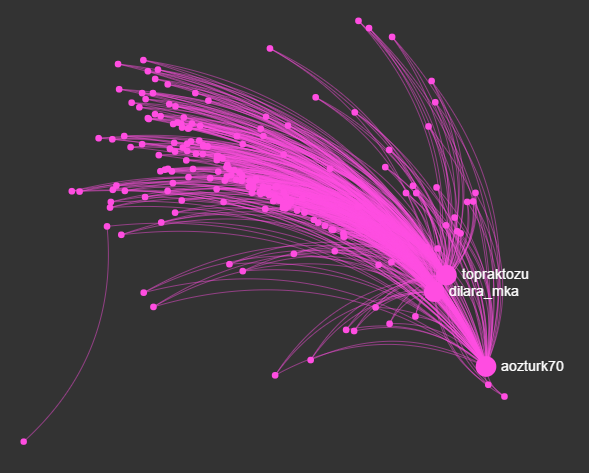
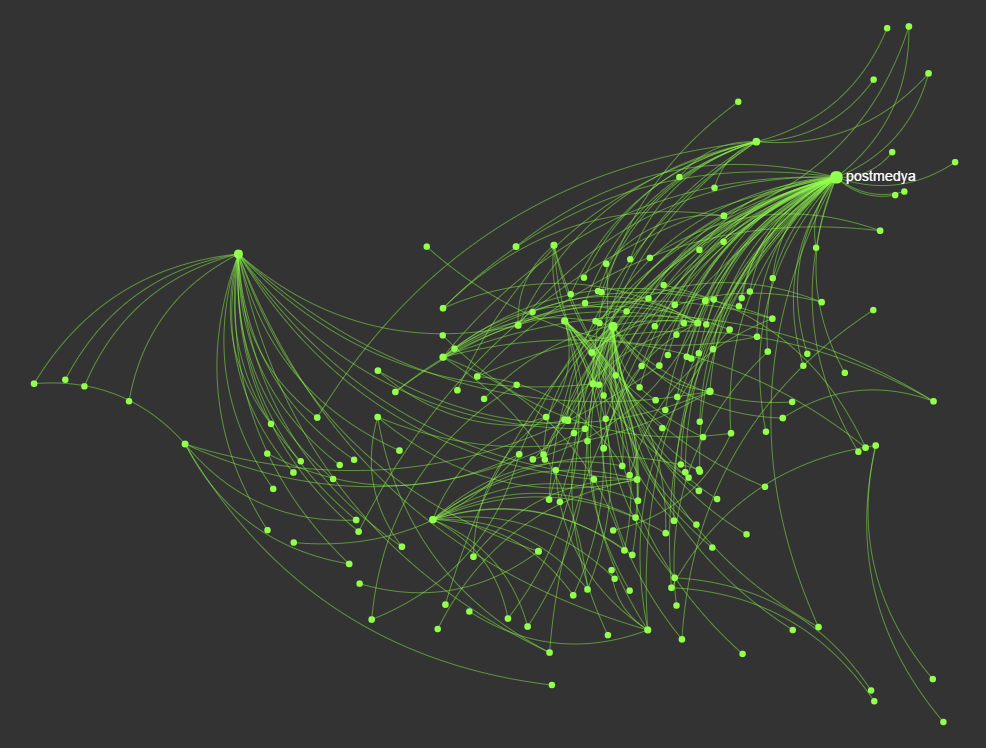
Leave a Reply